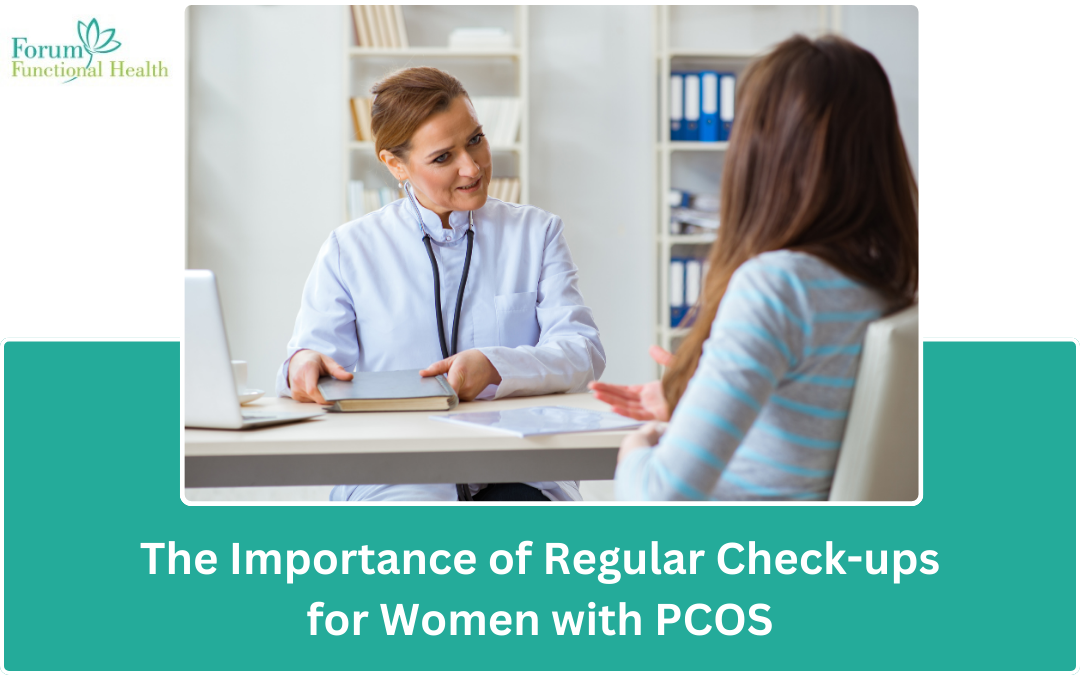Polycystic Ovary Syndrome (PCOS) is a common hormonal disorder affecting women of reproductive age. Characterized by irregular periods, excessive androgen levels, and cysts in the ovaries, PCOS can lead to various complications, including infertility, diabetes, and heart disease. While managing PCOS can be challenging, regular check-ups play a pivotal role in monitoring and addressing its symptoms effectively. In this comprehensive guide, we’ll delve into the importance of regular check-ups for women with PCOS and explore holistic approaches to managing this condition.
Understanding PCOS: A Complex Interplay of Factors
PCOS is a multifaceted condition with various underlying factors contributing to its manifestation. Genetics, insulin resistance, and hormonal imbalances are among the primary culprits. Without proper management, PCOS can significantly impact a woman’s quality of life and increase the risk of long-term health complications.
Importance of Regular Check-ups
Regular check-ups are essential for women with PCOS to monitor their overall health and manage the condition proactively. Here’s why these check-ups are crucial:
Early Detection of Complications: Regular visits to healthcare providers enable early detection of potential complications associated with PCOS, such as diabetes, high blood pressure, and cardiovascular disease. Timely intervention can prevent these complications from worsening and improve long-term outcomes.
Hormonal Balance Monitoring: PCOS is characterized by hormonal imbalances, including elevated levels of androgens such as testosterone. Regular check-ups allow healthcare professionals to monitor hormone levels and adjust treatment strategies accordingly to restore hormonal balance.
Evaluation of Reproductive Health: For women with PCOS who are trying to conceive, regular check-ups are vital for assessing reproductive health. Healthcare providers can track ovulation patterns, evaluate ovarian function, and offer guidance on fertility treatments if needed.
Lifestyle Modifications: Lifestyle factors such as diet, exercise, and stress management play a significant role in managing PCOS symptoms. During check-ups, healthcare professionals can provide personalized recommendations for lifestyle modifications to improve overall health and alleviate PCOS symptoms.
Medication Management: Many women with PCOS require medications to regulate menstrual cycles, manage insulin resistance, or induce ovulation. Regular check-ups ensure that medication regimens are appropriately prescribed and adjusted based on individual needs and treatment responses.
Holistic Approaches to PCOS Management
In addition to conventional medical interventions, holistic approaches can complement PCOS treatment and promote overall well-being. Here are some holistic strategies that women with PCOS may incorporate into their healthcare regimen:
Nutritional Guidance: A balanced diet rich in whole foods, lean proteins, and healthy fats can help stabilize blood sugar levels and improve insulin sensitivity in women with PCOS. Consulting with a registered dietitian or nutritionist can provide personalized dietary recommendations tailored to individual needs.
Regular Exercise: Physical activity is crucial for managing weight, reducing insulin resistance, and improving cardiovascular health in women with PCOS. Incorporating a combination of aerobic exercise, strength training, and flexibility exercises into a weekly routine can yield significant benefits.
Stress Management: Chronic stress can exacerbate PCOS symptoms by increasing cortisol levels and disrupting hormone balance. Techniques such as mindfulness meditation, yoga, and deep breathing exercises can help manage stress and promote relaxation.
Supplement Support: Certain supplements, such as omega-3 fatty acids, vitamin D, and inositol, may offer benefits for women with PCOS by addressing specific nutritional deficiencies and supporting metabolic health. However, it’s essential to consult with a healthcare provider before starting any supplements to ensure safety and efficacy.
Community Engagement: Joining support groups or online forums dedicated to PCOS can provide valuable emotional support, practical tips, and a sense of community for women navigating the challenges of this condition. Sharing experiences and insights with others can foster empowerment and resilience.
Forum Functional Health Center Holistic Treatments in Focus
At the Forum Functional Health Center, our approach to PCOS management encompasses a comprehensive array of holistic treatments aimed at addressing the root causes of the condition and optimizing overall health and well-being.
Root Causes and Forum Dialogue
In our forums, we delve into the underlying root causes of PCOS, including insulin resistance, inflammation, and genetic predispositions. Through open dialogue and expert insights, we explore integrative approaches to addressing these root causes and restoring balance to the body.
Supplement-Based Solutions
Supplements can play a supportive role in PCOS management by addressing nutritional deficiencies and supporting metabolic function. In our forums, we discuss evidence-based supplement options and provide guidance on safe and effective usage under the supervision of qualified healthcare professionals.
Community Empowerment and Support
Our forums serve as a hub for community empowerment and support, where women with PCOS can connect with others facing similar challenges, share their journeys, and exchange valuable resources and strategies for managing the condition holistically. Together, we empower each other to take control of our health and thrive despite the obstacles posed by PCOS.
Regular check-ups are indispensable for women with PCOS to monitor their health, manage symptoms, and prevent complications. By adopting a holistic approach that addresses the root causes of PCOS and integrates conventional and complementary therapies, women can empower themselves to lead healthier, more fulfilling lives. Join us at the Functional Health Center forums to explore holistic treatments, engage in insightful dialogue, and find support on your journey to optimal health with PCOS.

